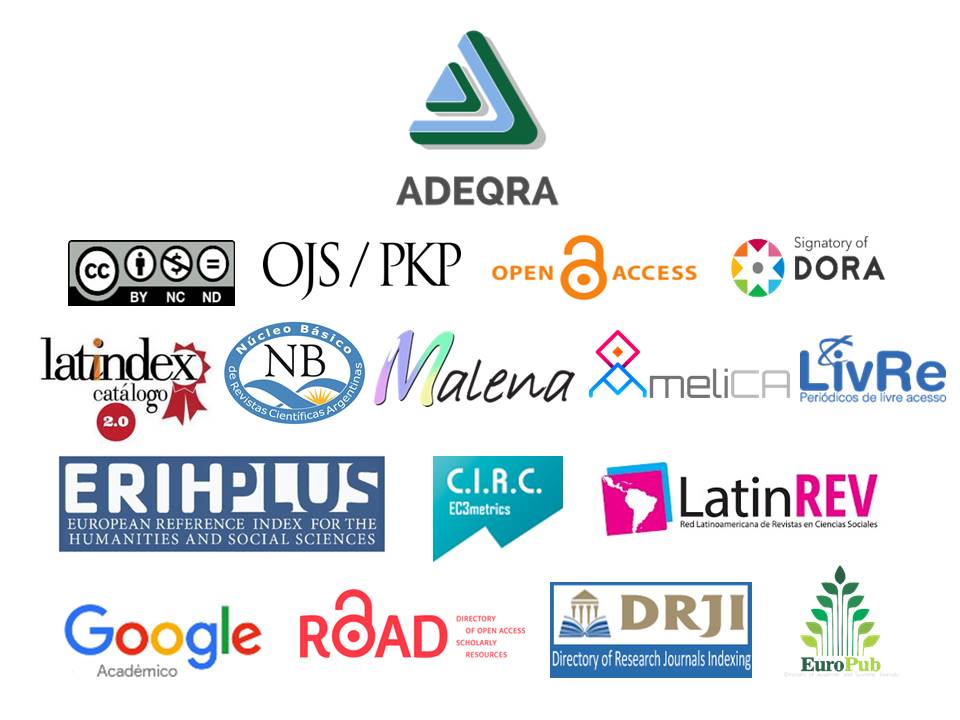Conocimiento didáctico de profesores universitarios sobre los trabajos prácticos de química inorgánica
Keywords:
pedagogical content knowledge, laboratory classes, laboratory, inorganic chemistry, universityAbstract
The pedagogical content knowledge (PCK) is useful model to know the ideas and knowledge that teachers have about an specific topic. Taking into account the importance given to experimental practice in university education, in this work we began to document PCK of a group of inorganic chemistry teachers about practical laboratory classes. An individual task of pencil and paper was implemented based on the original questionnaire “Content Representation” to fifteen teachers with different profiles. The texts produced were analyzed using grounded theory. The results show that teachers considered useful the experimental work for the incorporation of practical skills but prioritized content linked to the justification of observed phenomena through thermodynamic calculations. Other particular aspects (contextualization, laboratory reports) were not considered by them.
References
Blosser, P. (1990). The role of the laboratory in science teaching, Research Matters to the science teacher Nº 9001. Consultado el 20/11/16 en https://www.narst.org/publications/research/labs.cfm
Byers, W. (2002). Promoting active learning through small group laboratory classes. University Chemistry Education, 6, 28-34.
Domin, D. (1999). A review of laboratory instruction styles, Journal of Chemical Education, 76 (4), 543-547.
Farré, A. y Lorenzo, M. (2009). Another piece of the puzzle: The relationship between beliefs and practice in higher education organic chemistry, Chemistry Education Research and Practice, 10 (2), 176–184.
Farré, A. S. y Lorenzo M. G. (2014a). El escurridizo conocimiento didáctico del contenido: estrategias metodológicas para su documentación. En A. Garritz, S. Daza y M. G. Lorenzo (Ed.), Conocimiento didáctico del contenido: Una perspectiva iberoamericana. (pp. 35- 65) Saarbrücken, Alemania: Editorial Académica Española.
Farré, A. S. y Lorenzo M. G. (2014b). Para no seguir reinventando la rueda: El conocimiento didáctico en uso sobre los compuestos aromáticos. Educación química, 25 (3), 304-311.
Garritz, A., Daza, S. y Lorenzo, M. G. (2014). Conocimiento didáctico del contenido: Una perspectiva iberoamericana. Saarbrücken, Alemania: Editorial Académica Española.
Garritz, A. y Trinidad-Velasco, R. (2006). El conocimiento pedagógico de la estructura corpuscular de la materia, Educación Química, 17, 114-141.
Glaser, B. G. y Strauss, A. L. (1967). Discovery of grounded theory: strategies for qualitative research. Chicago, Aldine.
Gupta, V. (2001). Aims of laboratory teaching. CDTL Brief, 4 (1), Consultado el 24/11/16 en http://www.cdtl.nus.edu.sg/brief/v4n1/default.htm
Hernández Millán, G. (2012). Enseñanza experimental. ¿Cómo y para qué?, Educación Química, 23 (núm. extraordinario 1), 92-95.
Hofstein, A. y Mamlok-Naaman, R. (2007). The laboratory in science education: the state of the art, Chemistry Education: Research and Practice, 8 (2), 105-107.
Johnstone, A. H. y Al-Shuaili, A. (2001). Learning in the laboratory; some thoughts from the literature. University Chemistry Education, 5, 42-51.
Lorenzo, M. G. y Farré A. (2009). El análisis del discurso como metodología para reconstruir el conocimiento didáctico del contenido. Enseñanza de las Ciencias, Número Extra VIII Congreso Internacional sobre Investigación en Didáctica de las Ciencias, Barcelona, pp. 342-345.
Loughran, J. Mulhall, P. y Berry, A. (2004). In search of pedagogical content knowledge in science: Developing ways of articulating and documenting professional practice, Journal of Research in Science Teaching. 41, (4), 370–391.
Nakhleh, M. Polles, J., Malina, E. (2002). Learning chemistry in a laboratory environment. En: J. K. Gilbert, O. De Jong, R. Justi, D. Treagust. (Eds). Chemical Education: Towards Research-based Practice, 47-68. Kluger Academic Publishers: The Netherlands.
Padilla, K., Ponce de León, A. M., Rembado, F. M., y Garritz, A. (2008). Undergraduate Professors’ Pedagogical Content Knowledge: The case of ‘amount of substance’, International Journal of Science Education, 30:10, 1389-1404.
Reid, N. y Shah, I. (2007). The role of laboratory work in university chemistry., Chemistry Education Research and Practice, 8 (2), 172-185.
Reigosa Castro, C. y Jiménez Aleixandre, M. P. (2000). La cultura científica en la resolución de problemas en el laboratorio. Enseñanza de las Ciencias, 18 (2), 275-284.
Sánchez, G. H., Odetti, H. S. y Lorenzo, M. G. (2017a, en prensa). Estudio de trabajos prácticos de ciencias experimentales en el nivel superior. Una aproximación metodológica. En M. G. Lorenzo, A. Ortolani y H. S. Odetti (Comp.) Comunicando la ciencia. Avances en Investigación en Didáctica de la Ciencia. (En prensa), Santa Fe, Argentina: Ediciones UNL.
Sánchez, G. H., Odetti, H. S. y Lorenzo, M. G. (2017b, en prensa). Caracterización de la práctica educativa de docentes universitarios en clases de laboratorio. En Membiela Iglesia, F. P. (Ed.). La práctica docente en la enseñanza de las ciencias. (En prensa.) Vigo, España: Educación editora.
Séré, M. (2002) La enseñanza en el laboratorio. ¿Qué podemos aprender en términos de conocimiento práctico y de actitudes hacia la ciencia?, Enseñanza de las Ciencias, 20(3), 357-368.
Shulman, L., (1986), Those who understand: knowledge growth in teaching. Educational Researcher, 15, 4-14.
Travers, R. (Ed.) (1973). Second Handbook of Research on Teaching. Chicago, Estados Unidos: Rand Mc Nally & Co.
Weininger, J. L. (1998). Contemplating the finger: visuality and the semiotics of chemistry. Hyle, 4, 3-27.
Downloads
Published
How to Cite
Issue
Section
License

This work is licensed under a Creative Commons Attribution-NonCommercial-NoDerivatives 4.0 International License.



